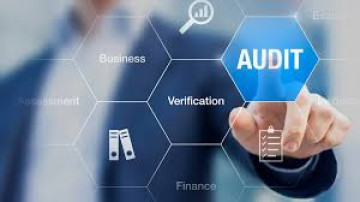The Importance of Opening a Business Bank Account
Starting a business comes with numerous responsibilities and decisions that can significantly impact its success. One of the most crucial steps that every entrepreneur must take early in their journey is opening a dedicated business bank account. This financial move not only provides a clear separation between personal and company finances but also offers legal protections and simplifies tax processes. Understanding the importance and the procedure for opening a business bank account is essential for establishing a strong financial foundation for your company.
Why Separate Business and Personal Finances?
One of the primary reasons to open a business bank account is to create a clear distinction between your personal and business finances. Mixing personal and business funds can lead to several problems, including legal complications, tax issues, and a lack of clarity in managing your company’s financial health.
From a legal perspective, separating finances protects the business owner from personal liability. If your business is registered as a corporation or a limited liability company (LLC), maintaining separate bank accounts helps uphold the corporate veil, a legal concept that distinguishes the company as a separate entity. This ensures that creditors cannot pursue your personal assets for business debts or liabilities.
Moreover, mixing finances complicates the accounting process and increases the risk of errors during tax filing. Having distinct accounts simplifies bookkeeping, making it easier to track business expenses, revenues, and profits. This clarity not only aids in financial management but also builds credibility with tax authorities like the IRS, reducing the risk of audits and penalties.
Essential Documents for Opening a Business Bank Account
When you decide to open a business bank account, you will need to prepare specific documentation to fulfill the bank’s requirements. Each financial institution may have slightly different criteria, but generally, you will need the following:
- Employer Identification Number (EIN): This is a unique number assigned by the IRS to identify your business for tax purposes. It is essential for most businesses, except some sole proprietorships without employees.
- Formation Documents: These include your Articles of Incorporation, Certificate of Formation, or Operating Agreement, which prove the legitimacy and legal standing of your business.
- Personal Identification: Valid identification such as a driver’s license or passport of the person opening the account.
Having these documents ready will streamline the process and avoid delays when opening your account.
Choosing the Right Bank for Your Business
Selecting a bank for your business account is more than just picking the closest branch or the one with the friendliest staff. It involves evaluating several factors to ensure that the bank’s services align with your company’s needs.
Consider the following when choosing a bank:
- Business Type Compatibility: Some banks specialize in serving specific industries or business sizes. For example, startup-friendly banks may offer better online tools and lower fees for small businesses.
- Fees and Charges: Review monthly maintenance fees, transaction costs, ATM usage charges, and any penalties. Minimizing unnecessary expenses can significantly impact your bottom line.
- Online and Mobile Banking Services: In today’s digital age, having robust online banking capabilities is crucial for managing your finances efficiently.
- Customer Service and Support: Reliable support can be valuable, especially in resolving account issues or providing financial advice.
- Additional Services: Some banks offer merchant services, credit cards, lending options, and financial planning resources tailored for business clients.
Taking the time to research and compare banking options will pay off by providing a smoother financial operation for your company.
Benefits of a Clean Financial Start
Opening a business bank account early in your company’s life cycle sets the stage for long-term success. A clean financial start does more than separate your personal and business money; it builds your company’s credibility with clients, partners, and regulatory bodies.
For clients, knowing that you operate a professional business account showcases your commitment to transparency and reliability. For tax agencies like the IRS, proper financial segregation simplifies audits and reinforces your compliance with tax regulations.
Moreover, clean record-keeping facilitates better financial analysis and strategic planning. It helps you identify profitable areas, manage cash flows effectively, and make informed decisions about growth and investment.
Steps to Open a Business Bank Account
To help you get started, here is a typical process for opening a business bank account:
- Choose the bank that best suits your business needs based on the factors discussed above.
- Gather all necessary documents, including your EIN, formation documents, and valid ID.
- Complete the bank’s application form, which may be available online or in-branch.
- Set up initial deposits as required by the bank to activate the account.
- Review and sign all agreements and documentation to finalize the account opening.
- Order checks, debit cards, and set up online banking credentials.
Following these steps carefully will ensure a smooth and successful setup of your business bank account.
When to Seek Professional Assistance
Sometimes, navigating the financial and legal complexities of managing business finances can be overwhelming, especially for first-time business owners. To ensure you make informed decisions and comply with all legal requirements, you may need proper help from experts.
At Legal Marketplace CONSULTANT, we specialize in providing comprehensive legal support tailored to businesses of all sizes. Our experienced team can guide you through the process of opening your business bank account, maintaining compliance, and optimizing your financial strategies.
Feel free to contact us through the communication channels listed in our bio or send us a private message. We are here to help you create a strong legal and financial foundation for your business in 2025 and beyond.
Additional Tips for Managing Your Business Bank Account
- Regularly monitor your account activity to detect any unauthorized transactions promptly.
- Keep detailed records of all deposits and withdrawals to simplify tax preparation.
- Schedule periodic reviews with your accountant or financial advisor to assess your banking needs.
- Use accounting software that integrates with your bank’s online platform for seamless bookkeeping.
- Avoid using your business account for personal expenses under all circumstances.
Common Questions About Business Bank Accounts
- Can I use a personal bank account for my business? – While possible for sole proprietors, it is not recommended due to mixing finances and potential legal risks.
- What if my business doesn’t have an EIN? – Sole proprietors without employees may use their Social Security Number, but obtaining an EIN is advised for growth.
- How long does it take to open a business bank account? – The process can vary but usually takes from a few minutes online to a few days if additional verification is needed.
- Are there any fees associated with business bank accounts? – Most banks charge maintenance fees, but many offer options to waive these under certain conditions.
Opening a business bank account is a fundamental step for any entrepreneur who wants to establish a professional, legally compliant, and financially organized company. By separating personal and business finances, you protect yourself legally and create a transparent financial path that simplifies tax filings and fosters trust among clients and authorities.
Gathering the required documents such as your EIN, formation paperwork, and identification ensures a smooth account opening process. Carefully selecting the right bank based on your specific business needs is equally important for cost efficiency and service quality.
Remember that a clean financial start in 2025 will build credibility and open doors for your business growth. If you need expert assistance, Legal Marketplace CONSULTANT stands ready to support your journey—contact us today through our bio communication channels or send a private message for personalized help.
Legal Marketplace CONSULTANT — a legal company specializing in comprehensive legal services for businesses and individuals. Our expertise is based primarily on the specialization of our team, which includes lawyers, legal advisors, tax consultants, auditors, and accountants. We are dedicated to providing you with professional support to facilitate your business success in the modern marketplace.































